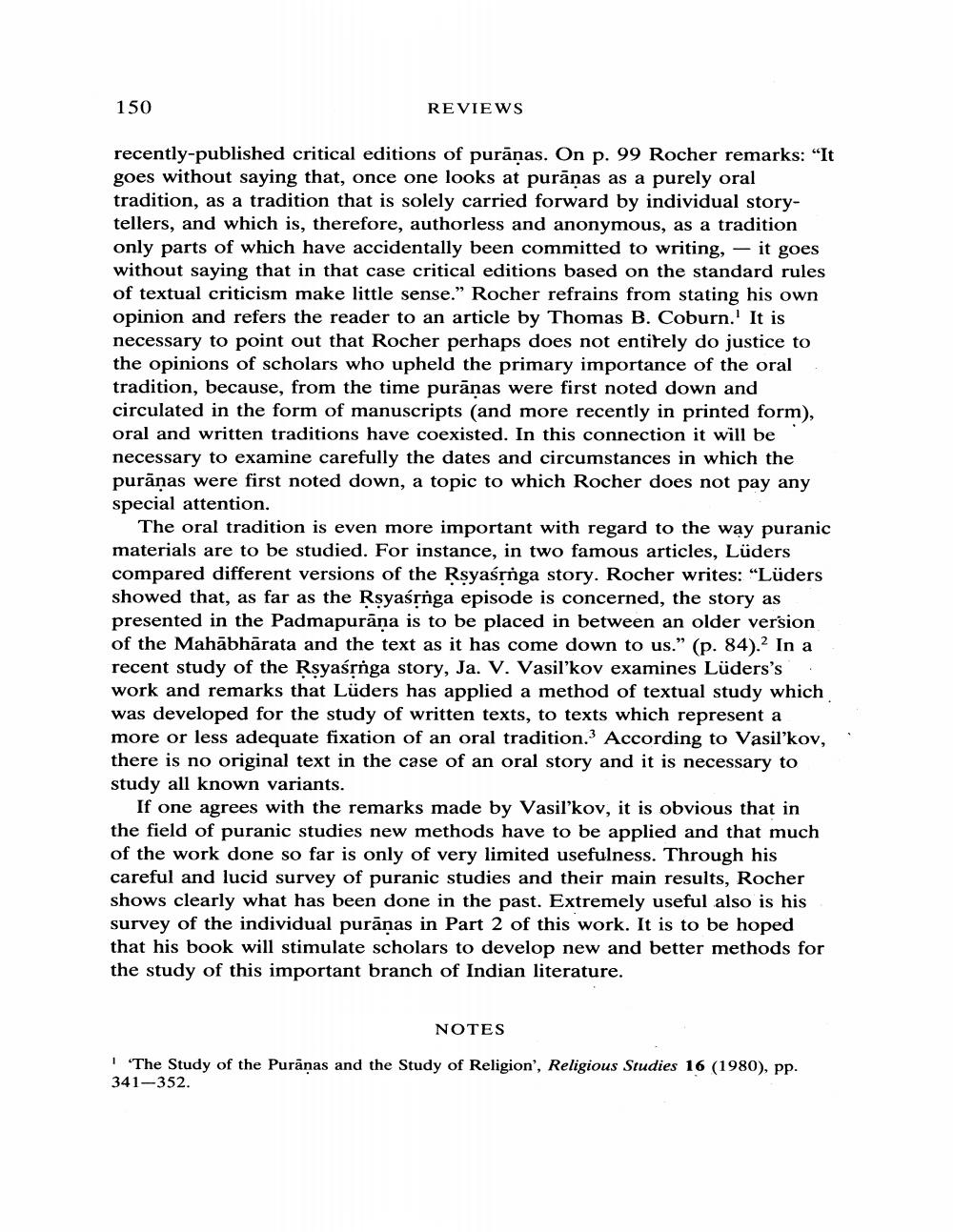Book Title: Book Reviews Author(s): J W De Jong Publisher: J W De Jong View full book textPage 8
________________ 150 REVIEWS recently-published critical editions of puranas. On p. 99 Rocher remarks: "It goes without saying that, once one looks at purāņas as a purely oral tradition, as a tradition that is solely carried forward by individual storytellers, and which is, therefore, authorless and anonymous, as a tradition only parts of which have accidentally been committed to writing, it goes without saying that in that case critical editions based on the standard rules of textual criticism make little sense." Rocher refrains from stating his own opinion and refers the reader to an article by Thomas B. Coburn.' It is necessary to point out that Rocher perhaps does not entirely do justice to the opinions of scholars who upheld the primary importance of the oral tradition, because, from the time purāņas were first noted down and circulated in the form of manuscripts (and more recently in printed form), oral and written traditions have coexisted. In this connection it will be necessary to examine carefully the dates and circumstances in which the purāṇas were first noted down, a topic to which Rocher does not pay any special attention. The oral tradition is even more important with regard to the way puranic materials are to be studied. For instance, in two famous articles, Lüders compared different versions of the Rṣyaśṛnga story. Rocher writes: "Lüders showed that, as far as the Rsyaśṛñga episode is concerned, the story as presented in the Padmapurana is to be placed in between an older version of the Mahabharata and the text as it has come down to us." (p. 84). In a recent study of the Rṣyaśṛnga story, Ja. V. Vasil'kov examines Lüders's work and remarks that Lüders has applied a method of textual study which was developed for the study of written texts, to texts which represent a more or less adequate fixation of an oral tradition. According to Vasil'kov, there is no original text in the case of an oral story and it is necessary to study all known variants. If one agrees with the remarks made by Vasil'kov, it is obvious that in the field of puranic studies new methods have to be applied and that much of the work done so far is only of very limited usefulness. Through his careful and lucid survey of puranic studies and their main results, Rocher shows clearly what has been done in the past. Extremely useful also is his survey of the individual purānas in Part 2 of this work. It is to be hoped that his book will stimulate scholars to develop new and better methods for the study of this important branch of Indian literature. NOTES 'The Study of the Puranas and the Study of Religion', Religious Studies 16 (1980), pp. 341-352.Page Navigation
1 ... 6 7 8 9 10 11 12 13 14 15 16 17 18 19 20 21 22 23 24
